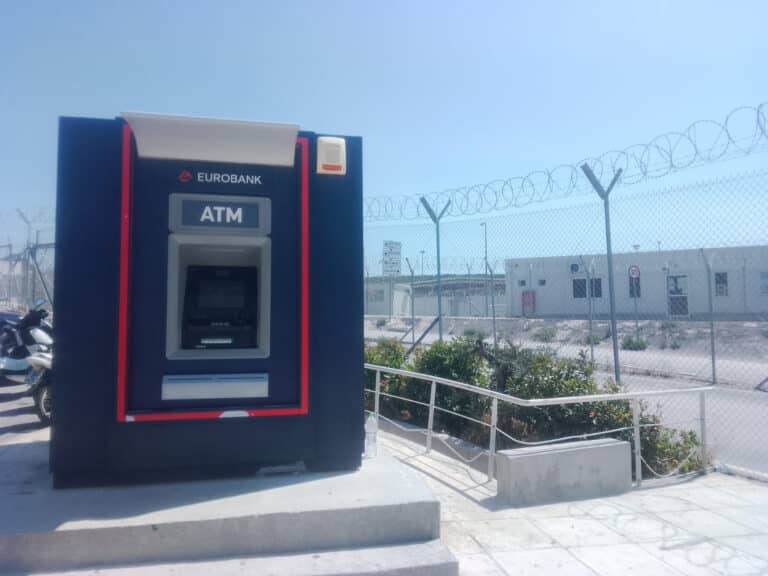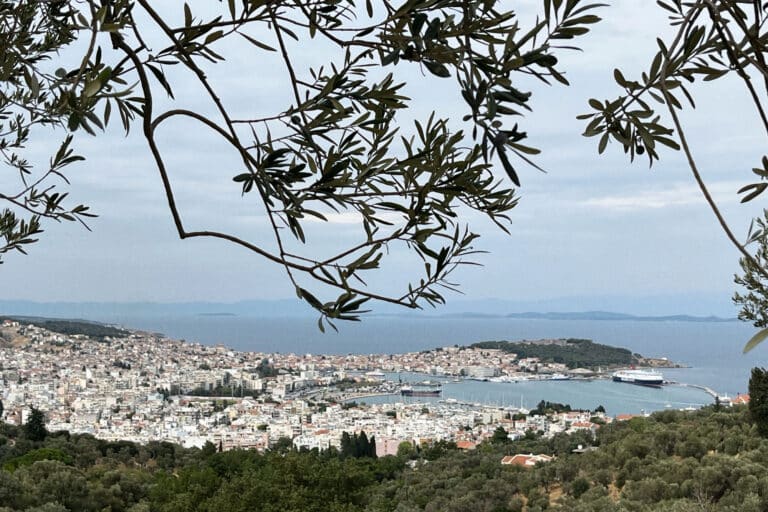I look out the window. Just a few metres away is the cemetery where my father is buried. I want to visit my father’s grave; it’s only a minute away, I can see it.
But I can’t just cross the street. I’d have to take another road and drive for more than half an hour, to circumvent the checkpoints and the wall that separates one area from another and divides us.
That street I see from my window, I am forbidden to cross that street used by settlers and closed off to Palestinians.
Within these few metres of road, there are several military checkpoints to protect and ensure the safety of settlers’ passage, but my safety is inconsequential.
A sadness grips me when I enter the old city, strangled by checkpoints, closures, and cement berms.
Its markets used to be a cultural kaleidoscope, the city centre was full of life, movement, commercial activity and tourism, owing to its ancient historical significance.
Now a ghost town, these strict measures of closure and harassment of residents and merchants have emptied the area of its residents. The alleys with old roofs and arches are devoid of shoppers.
The Ibrahimi Mosque defines the centre of the old city, steadfast in history and religion. For this very reason, the settlers seek to turn it into a synagogue, another fait accompli to cement their illegal presence on the ground.
When we toured the area near the Ibrahimi Mosque, we came upon countless closed entrances leading to many Palestinian homes. As a result of these blockades, residents are forced to take the road around to reach their homes. What should be a distance of 10 metres becomes 800 metres.
These divisions are complex, and no one understands them until you walk the streets yourself. If a resident of the area needs medical attention, an ambulance can only enter through prior coordination with the International Committee of the Red Cross and the army. Once permission is given, it will take an hour to reach the location. In the event of an emergency, it is useless. The ambulance will be too late.
Another near impossible task for residents is transporting heavy cargo, like furniture and building materials to renovate their homes.

I went to the Jaber neighbourhood, where the main street from the settlement of “Kiryat Arba” to the Ibrahimi Mosque has been closed to Palestinians for ten years. It is a key transportation artery for the city, but Palestinians cannot use it—it is only available for settlers.
It is as if the Palestinian residents of the area are controlled within a giant prison, surrounded by military checkpoints and barred from streets and entrances. Cut off from several traditional markets like Souk al-Laban, Bab al-Khan, and Al-Sahla neighbourhood.
And then, of course, Al-Shuhada Street, another main street of the city, as well as Al-Sahla Street, and the central vegetable market. Soon the entire area will be under settler control.
They’ve given the streets Hebrew names, hanging banners on the walls of the neighbourhoods: ‘King David Street’ instead of Al-Shuhada Street.
The city centre is inhabited by more than forty thousand Palestinians caged in by wires, checkpoints and fear, while the number of settlers in settlements in the old city of Hebron does not exceed a thousand.
These terrifying checkpoints are everywhere, and digital surveillance cameras buzz in every direction, scanning facial recognition for Palestinians. Even with such advanced technology, residents of the area are never spared the daily inspection, nor are the worshippers who go to the Ibrahimi Mosque to pray.
While Palestinians suffer under complicated security measures, settlers receive excessive protection, to the point of soldiers escorting settlers when they go to throw garbage away ten metres from the checkpoint.
I look out the window. The cemetery is just a few metres—but, in fact, a world away.




